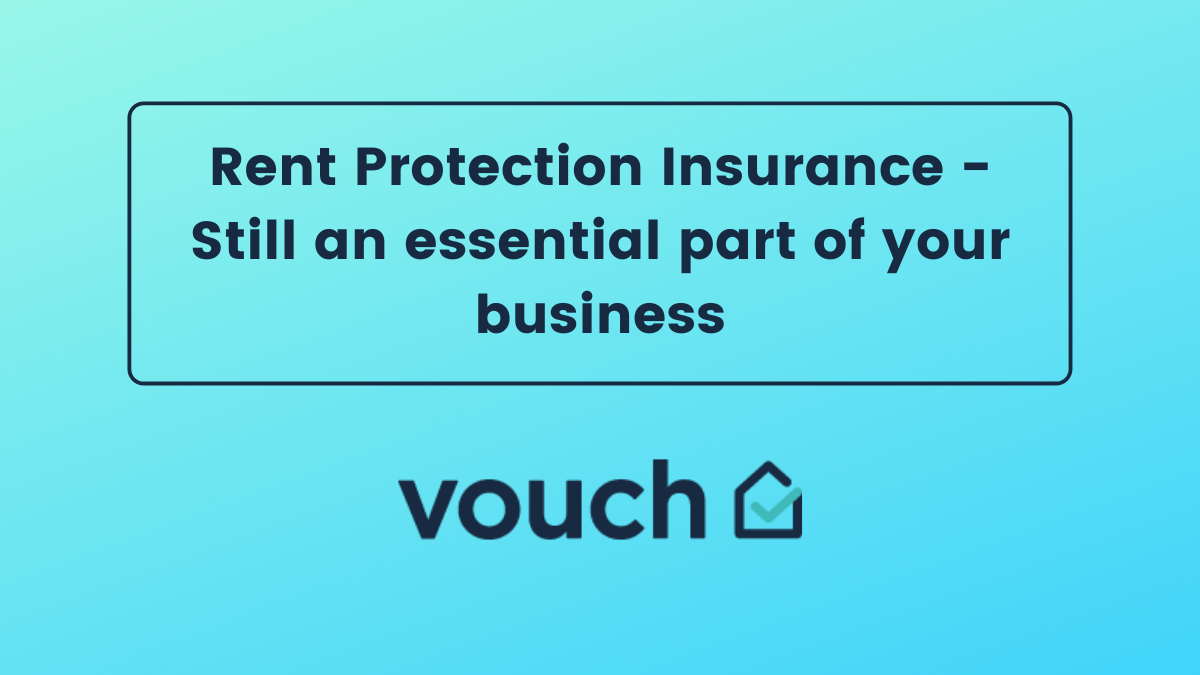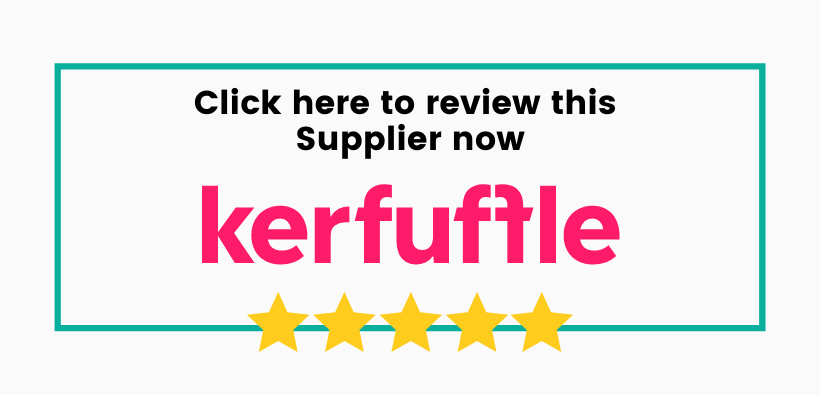Why you should be using it and what to look out for.
Rent Protection Insurance has become more prominent in recent times, with tenants still recovering financially from the impact of COVID-19, and the ongoing cost of living crisis both impacting their ability to pay rent.
The most recent announcements included in the Queen's Speech included plans for a ‘renters reform bill’. This Bill is designed to deliver a better deal for the 4.4 million households in England’s private rental sector, as well as provide them with more secure and higher quality homes.
These changes to legislation are expected to abolish ‘no-fault’ evictions by removing Section 21 of the Housing Act 1988 and give tenants more confidence to challenge poor practice and unfair rent increases without fear of eviction.
What does this mean for landlords and letting agents?
The main elements of the Bill are:
Abolishing so-called ‘no fault’ evictions by removing Section 21 of the Housing Act 1988 - This means a reason must always be provided when wanting to end the tenancy, e.g. breach of contract, or wanting to sell the property.
Introduce a new Ombudsman for private landlords - This will help resolve disputes without the need to go to court, which is often costly and lengthy.
Introduce a new property portal - This will “help landlords understand their obligations” and allow tenants to hold their landlords to account.
You can read the background briefing notes in full here.
Letting agents will need to make sure they educate their landlords and make it clear what their new responsibilities will be under the new legislation.
“Unlike previous legislation, it appears that the bill will go further in encouraging greater levels of transparency and accountability between all parties involved in a tenancy. We look forward to seeing what the complete white paper includes next month.” - Simon Tillyer, Co-Founder of Vouch
“Now that the Bill is clearly back on the agenda, the Government must provide letting agents, landlords and tenants the clarity they need to move forward with confidence.
“Uncertainty is no good for the market, especially one that’s grappling with an ever-changing set of regulations and new requirements. The industry now needs clear timelines so they can prepare accordingly.” - Tom Mundy, COO of Goodlord
With the final Bill not yet announced, it is unclear when these new policies will be introduced.
In the meantime, some things can be done to get ahead of the changes to legislation, especially the eviction process.
Rent Protection Insurance
On top of the proposed new legislation, tenants are also having to cope with the rising cost of living. Fuel, utilities, food and so many other household bills are on the rise, and for some tenants, it will get to a point where they start looking where they can get away with not paying.
At the height of the pandemic, there was a lot more support for tenants who were struggling to pay their rent in the forms of payment plans, payment holidays, and in some cases a reduction in rent.
Compared to today, there is nowhere near the same level of support for tenants. There are a few schemes out there but these are not enough to tackle the problems that people may now be facing.
For those tenants with some or healthy savings, the effects may not be immediate, however, as we saw in the pandemic, rental payments may soon start to be affected.
Despite this pressure on tenants caused by the cost of living crisis, the urgency and reaction times in terms of getting protection in place on properties have not been the same compared to the pandemic.
As of December 2021, the average time to evict a tenant in the UK is 17 months (Mortgage and landlord possession statistical tables: October to December 2021, MOJ). If you don’t have Rent Protection in place, that is 17 months where there is no rental income from that property.
Now would be an ideal time to educate landlords and explain that Rent protection is still essential, as it has always been, but especially during this cost of living crisis, as it is hard to predict the effects it will have on them and their tenants.
With the current drought in rental property stock, agents can shine and differentiate themselves from their competitors by offering additional support, services and advice to landlords to help protect their investment.
You can learn more about our Rent Protection Insurance and what it covers in our recent webinar with Lee Redfern from Goodlord. Watch it here.
So what exactly is Rent Protection?
If you don’t know already, Rent Protection Insurance (RPI) is a way to protect your business and landlords. It is an insurance policy that covers against non-payment of rent as well as supplying legal help and covering the costs involved in the eviction process. If your tenants are unable to pay their rent for any reason, this is where RPI comes in.
Like all insurance, you pay for it with the hope you never need to use it! Unfortunately in the current conditions claims rates are higher than ever before.
There are many different policies on the market. Some cover individuals, others cover the property and rental amount as a whole. The latter is a much simpler (and normally cheaper option). Rent protection will cover the rent where your tenants default on their payments. Policy lengths are usually for six or 12 months (depending on the length of the tenancy) and can be renewed year on year if needed. Some policies may have conditions and exclusions depending on the provider, which could mean that you aren’t able to claim for the six/12 months of missed rent.
For example, some policies need to have had a rent protection policy in place previously if you are wanting to make a claim straight away. If it’s the first time a policy has been put in place, there may be an exclusion period from the policy start date, before you can make a claim. A cap can also be applied to the number of missed monthly payments it will cover, for example, four or five months - or until the contract ends and the tenant is evicted, whichever comes first.
It is important to read these conditions and exclusions carefully before making a decision on which policy you go for, to ensure that you aren’t caught out when it comes to making a claim.
Why is Rent Protection so important?
When COVID-19 hit, a lot of providers pulled their products from the market or excluded COVID-19 from their policies. This left a lot of agents and their landlords ‘in the lurch’ when it came to tenants missing payments.
Having rent protection insurance in place will give you and your landlords peace of mind, especially in the current climate. Along with protecting your rental income, it can also support legal fees - for example, our Rent Protection Policy will cover up to £100,000 in legal expenses.
We have seen a HUGE uptake in the number of agents using Rent Protection Insurance and a decisive change in how it is offered to their landlords.
The level of trust between landlords and their letting agents was thoroughly tested at the height of the pandemic. It came as no surprise that landlords were wanting assurances from their agents that they would be protected and would have that security when it comes to their rental income. So for those that have been using RPI products intermittently, or not at all - the demand has never been higher! Including rent protection in the most basic packages offered to your landlords should become standard procedure, so that you can easily improve the services you offer as well as your relationship with your landlords.
Offering rent protection insurance could be the deciding factor for landlords choosing whether to leave the market and having the confidence to stay, with the assurance that their rental income is protected.
What you should look for when buying a Rent Protection Policy?
So we’ve covered what it is, and why it’s important. Now, what should you look for in a Rent Protection Policy? Here are a few pointers;
1. Nil excess
A lot of policies that have come back to the market have added an excess because of COVID-19. This can have a negative impact on you and your landlords, as the excess is usually the equivalent of 1 month’s rent. So look for a product with no excess.
2. Legal implications
Check what kind of cover you will be getting in terms of legal expenses. With all the changes in legislation recently, it has all gotten a little confusing. So make sure that the whole legal process is being taken care of by the insurance provider. This means you relax a little once the claim has been accepted, knowing that the legal process will be fulfilled and managed by that provider.
3. Amount of coverage offered
There have also been changes to the amount of coverage that is paid out. Make sure to check how many months of missed rent the policy will pay out.
4. Is rent recovered as part of the process?
Some policies won’t look to recover rent from the tenant. Landlords understandably will want to hold the tenants accountable, and you want your tenants to understand their liability against the tenancy agreement they have signed.
5. Added extras
Are there any added extras that come with or can be added to the policy? This can include things like property damage cover, or payment after vacant possession. There are policies out there that will pay out up to 75% of the rent 2 months after vacant possession is obtained. This can be very beneficial to landlords who may be experiencing longer void periods in the current climate.
6. Policy wording - make sure you understand it
Very important - make sure you understand the policy itself and the benefits. If you understand it, you will feel more confident when explaining it to your landlords. You will also be able to understand the effect that it has on your customers. It can be very boring, but with it in the long run!
If you have tenants who are struggling to pay their rent, have a read of this blog from our partners at Goodlord for some different ways to manage the scenario, from assessing your tenants’ financial situation to coming up with payment plans (free templates included).
If you would like to know more about Rent Protection and the services we offer, you can get in touch here
*Information correct at time of writing. For more information, please see www.gov.uk




